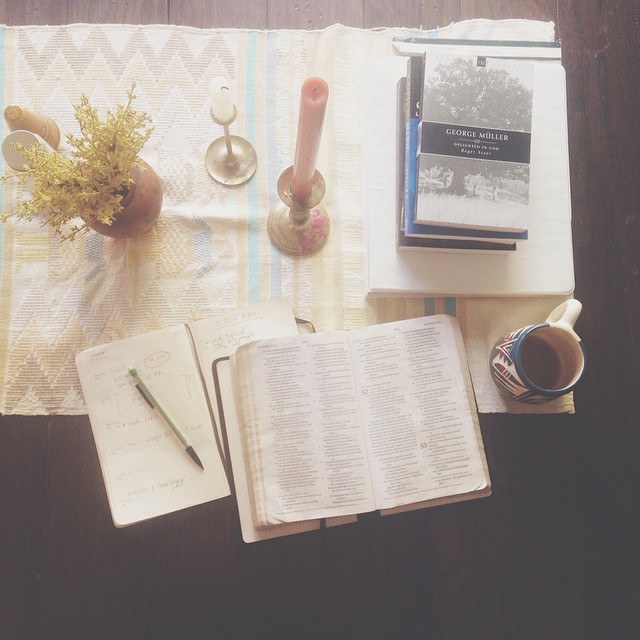When Your Bible Reading Plan Fails
 A few years ago my bible intake changed from broad to specific. Instead of reading a passage from the Old Testament, a Psalm or Proverb, and a New Testament selection daily, I began to just read the same book repeatedly for weeks. It has transformed my love for the Word. I always felt like I was drinking from a shallow well in every single Bible Reading Plan I picked. I'd lose steam and feel guilty that I wasn't checking off my daily reading, I'd forget where I was reading, or forget the narrative line. I found myself spending more time trying to piece together things than actually reading and ingesting what I was reading. I loved the Word of God, but I mostly loved it because I knew there was life in it, not because I actually felt life in my reading.
A few years ago my bible intake changed from broad to specific. Instead of reading a passage from the Old Testament, a Psalm or Proverb, and a New Testament selection daily, I began to just read the same book repeatedly for weeks. It has transformed my love for the Word. I always felt like I was drinking from a shallow well in every single Bible Reading Plan I picked. I'd lose steam and feel guilty that I wasn't checking off my daily reading, I'd forget where I was reading, or forget the narrative line. I found myself spending more time trying to piece together things than actually reading and ingesting what I was reading. I loved the Word of God, but I mostly loved it because I knew there was life in it, not because I actually felt life in my reading.
After studying the book of Galatians with my church a few years ago, I realized my love for the Bible increased exponentially, I saw themes I hadn't seen before, and I understood Paul as a person in a way I never had. It was as though my Bible reading went from watching a drama take place on a stage to actually being a part of the play.
If you struggle with your bible reading, if you battle constant guilt about not keeping up with your plans, or fight a checklist mentality when reading the Word, I cannot encourage you more to begin reading this way. Joe Carter at The Gospel Coalition has some tips about how to start reading this way, and I wanted to share a few areas I've seen fruit in my life from this reading method.
1. I memorize the word subconsciously. When I read the same verse forty or fifty times within the span of a few weeks, I can't help it, it just gets in me. I've been reading James for the past three months and could outline the entire book from memory and unintentionally have memorized much of it. I might not be able to give you chapter and verse, but I know the meaning and hope in a way I never could before.
2. I understand context better. Reading the entire book helps me to understand the voice of the writer, the history of the situation, the issues at hand in a way I didn't grasp when I just read a chapter or two out of context. I learn that I grow to love the audience of the epistle or the prophet speaking in a way I didn't before. Context matters.
3. I no longer come at my bible reading with a nagging guilt, but a expectant hope. Not checking off a list or plan or even having a specific date tied to where I was "supposed" to be reading has been so good for me. I come ready to eat and drink, not to prove or even serve; it is not a task, but a gift.
If you want to learn to study the bible and don't know where to start, I cannot recommend more highly (for men and women) Jen Wilkin's short book, Women of the Word. I'm biased because everything I know about studying the bible I learned at her feet, but I don't know anyone who teaches better by example than Jen. Spending months in a single book has been one of the best disciplines of my life, and learning to study it as I do has brought such life to me.
